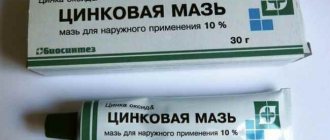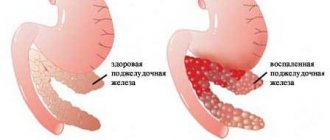Is it even possible to use hot vaccines to get rid of a fetus?
Any specialist will tell you that such a barbaric method can only be recommended by those who understand absolutely nothing about medicine. Most often, these women do not think at all about the consequences, and after it they will respond very strongly in the future with a one hundred percent guarantee of negative problems. If you want to use this method, you should know:
1. This method exists only in theory, but in practice no one uses it; 2. Under no circumstances should you do it yourself.
When can this method be used?
This method of getting rid of a child is used quite rarely and, like any other, is carried out under the strict supervision of a doctor.
Important! Their independent use is strictly prohibited and can lead to serious health problems, including infertility.
Intravenous administration of calcium chloride is called a “hot injection”. Its use is permissible only in cases where a woman has contraindications to direct surgery or other methods of abortion.
There are other types of abortion: • Vacuum abortion, most often done in the early stages; • Curettage, typical for abortions from 8 weeks; • Medical termination of pregnancy, using pills.
Injections for abortion
To begin with, we note that at present this method of abortion is practically not used and is considered very dangerous. The thing is that, thanks to its composition, it, of course, instantly kills the fetus, but in no way removes it from the body. That is, inside you after the procedure, there is a dead body, which, of course, can begin to decompose and cause infection of the internal organs.
The best option is if after the stake a miscarriage occurs within the first 24 hours, but this does not always happen. And in such cases, the woman will have to undergo curettage.
In addition, a hot injection cannot provide a one hundred percent guarantee of terminating an unwanted pregnancy. In folk medicine, “grandmothers” advise giving intravenous injections of no-shpa or ascorbic acid. But this is even more dangerous than the hot injection method. Its effectiveness is approximately 10 to 100, but pathological disorders in the fetus are guaranteed.
And if you suddenly decide to save the child’s life after such an unsuccessful abortion, then most likely he will be born with serious disabilities. It’s all about the individual characteristics of the body for taking certain cocktails. Ascorbic acid slows down physiological development. There is another method using oxytocin, it contracts the uterus. Firstly, this is a completely artificial drug that stimulates smooth muscles and after its administration you will begin to experience contractions, in the literal sense of the word. And even the slightest overdose can simply rupture it, which can even result in death or subsequent infertility. But doctors sometimes use this method in the second trimester, when pathologies incompatible with life are discovered in the fetus.
How they do it
A hot injection into a vein is a rather complex procedure that requires skills from a medical professional.
Otherwise, additional therapy may be required to eliminate the consequences. Such injections can only be given intravenously. If the product gets under the skin, it will cause necrosis of the subcutaneous fat. The injection syringe must have a small diameter.
Preparation
No preparatory procedures are required before disposing of the fetus using medications. The only condition is to limit food intake on the day of the procedure.
Abortion by injection is carried out only after the patient has undergone examination and in the absence of individual contraindications.
Giving an injection
The main condition when administering an injection is to administer the drug very slowly, otherwise you can injure the vein wall.
You can administer the product in 3 ways:
- Jet (regular injection).
- Drip (classic drip).
- Electrophoresis (the product enters due to current discharges).
If the injection is given quickly, fainting is possible. If the patient suffers from hypotension (low blood pressure) and a tendency to lose consciousness, then the healthcare worker should be warned about this. In this case, the medicine will be administered within 4-5 minutes.
After interruption
The rehabilitation period plays a serious role. Not only the patient’s health, but also her reproductive ability in the future depends on recovery.
Chemical abortion has few complications compared to surgical abortion, but it is advisable to minimize them.
Required:
- avoid sexual intercourse for 30 days to prevent infection of the uterine cavity;
- avoid physical overexertion, postpone sports activities;
- strictly observe hygiene requirements, wash yourself 3 times a day with a light solution of potassium permanganate;
- Change underwear daily and sanitary pads several times during the day.
After a miscarriage, you need to visit a gynecologist for a preventive examination. Do an ultrasound of the pelvic organs within six months.
If a woman experiences mood swings or depression, a psychologist will help. You can take a light herbal sedative.
Contraindications to abortion
After you have passed all the tests and the fact of an unwanted pregnancy has been confirmed. You should once again weigh the pros and cons, try to collect your thoughts and make the right decision.
As for the injection itself, its use is already very rare; it will be completely impossible if the pregnancy period is more than seven weeks. Remember that abortion is not always the only option and the life that has begun to develop inside you has the right to be born and make you the most beloved mother.
But, if you still decide, then make sure that you have contraindications that may deprive you of the opportunity to have a child in the future.
An abortion cannot be done if: • There are existing scars on the uterus; after administration of the drug, it will begin to contract and may rupture because of this; • Taking anticoagulants; • Incorrect position of the fetus after administration of the drug can cause intrauterine death without subsequent exit; • Installed IUD in the uterus, in this case only vacuum abortion is possible in the early stages; • Cardiovascular diseases; • Chronic renal and liver failure.
You may not even be aware that you have any contraindications, so a prerequisite for an abortion is preliminary testing.
Benefits of injections into the tummy
Have you been trying to heal your JOINTS for many years?
Head of the Institute for the Treatment of Joints: “You will be amazed at how easy it is to cure your joints by taking the product every day for 147 rubles ...
Read more "
Injections prescribed to pregnant women are aimed at thinning the blood. During pregnancy, blood becomes thicker. For example, imagine paresis on a finger. At first, watery blood flows from the wound, then it thickens and eventually stops. In the vessels of the body, two systems are balanced, coagulation and, on the contrary, blood thinning. In stressful situations, the balance may be disrupted and blood vessels may become blocked.
During ( the form of physical and mental processes, the condition for the possibility of change
) pregnancy (
a biological state of animals characteristic of female placental and marsupial mammals
) the overload on a woman’s body increases several times. The blood may become thicker, which can reduce the flow of nutrients and oxygen to the fetus. Starvation occurs and the pregnancy may freeze or a miscarriage may occur.
How is the procedure for abortion by injection performed?
A prerequisite, regardless of the chosen method, must be an abortion under the supervision of a specialist in the gynecological department of the clinic. This is necessary so that the doctor can control the situation if something suddenly goes wrong. But, a hospital stay is not required. However, after two days you will need to come back for an examination by a specialist to make sure that the procedure was successful.
Then, the doctor will schedule another appointment for you based on your post-operative condition.
There are cases when, after an abortion, the fetus does not come out and you will need an additional procedure of vacuum cleaning or curettage.
It is worth remembering that the doctor can only recommend a safe method, but the decision is always yours. In addition, usually after the appointment a psychologist will talk with you a little to try to convince you to save the child’s life.
Groups of medicines
All drugs that prevent blood clots are divided into two groups:
- Antiplatelet agents. They help stop the formation of blood clots, which prevents angina pectoris.
- Anticoagulants. These are medications that have the property of preventing increased blood clotting and thrombosis in the future.
Medicines of the second type, in turn, are classified into:
- drugs with indirect effects, which are used as prophylaxis after a stroke or myocardial infarction;
- direct action, used when carrying out temporary therapeutic measures under the control of laboratory tests.
Consequences and side effects
If you strictly followed all the specialist’s recommendations and had an abortion under his supervision, then the risk of any negative consequences is minimized.
Nevertheless, this method is rejected for a reason precisely because of its serious consequences, which are sure to arise at the slightest deviation from the instructions. 1. The easiest of them are dizziness and complete lack of sleep; 2. Vomiting and digestive system upset, even diarrhea is possible; 3. Nagging and sharp pain in the lower abdomen, usually of a permanent nature; 4. Formation of ulcers on the mucous membrane of the larynx and inside the oral cavity.
Sometimes, vaginal bleeding may occur and in this case urgent hospitalization is necessary.
Symptoms of this pathology
When taking a blood test in the first months of pregnancy, you can already identify signs of blood thickening. For example, it will be extremely difficult to draw blood from a finger into a capillary.
When donating blood from a vein, it will coagulate as it enters the syringe and close its lumen. If this happens, you need to tell your doctor about it. Also, this pathology may be accompanied by a combination of the following symptoms:
- lethargy;
- weakness;
- decreased ability to concentrate and memory impairment;
- apathy;
- high blood pressure;
- the appearance of varicose veins of the legs.
All these symptoms are a consequence of deterioration of microcirculation and the appearance of hypoxia. First of all, the brain lacks oxygen.
Increased blood viscosity poses a danger to the health of the expectant mother and child. This pathology can lead to the following negative consequences for a woman:
- varicose veins in the legs;
- the occurrence of blood clots;
- development of stroke or heart attack.
If you do not deal with this problem, blood thickening may have a negative effect on the vital functions of the fetus. This may manifest itself in the following pathologies:
- intrauterine hypoxia;
- developmental disorders;
- fading pregnancy;
- there is a threat of miscarriage.










